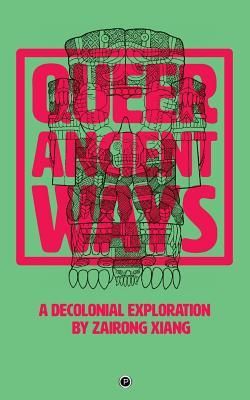At the heart of Xiang's argument is an account of the way the unfounded feminization of figures such as the Babylonian (co)creatrix Tiamat, and the Nahua creator-figures Tlaltecuhtli and Coatlicue, is complicit with their monstrification. This complicity tells us less about the mythologies themselves than about the dualistic system of gender and sexuality within which they have been studied, underpinned by a consistent tendency in modern/colonial thought to insist on unbridgeable categorical differences.
By contextualizing these deities in their respective mythological, linguistic, and cultural environments, through a unique combination of methodologies and critical traditions in English, Spanish, French, Chinese, and Nahuatl, Xiang departs from the over-reliance of much contemporary queer theory on European (post)modern thought. Much more than a queering of the non-Western and non-modern, Queer Ancient Ways thus constitutes a decolonial and transdisciplinary engagement with ancient cosmologies and ways of thought which are in the process themselves revealed as theoretical sources of and for the queer imagination.
